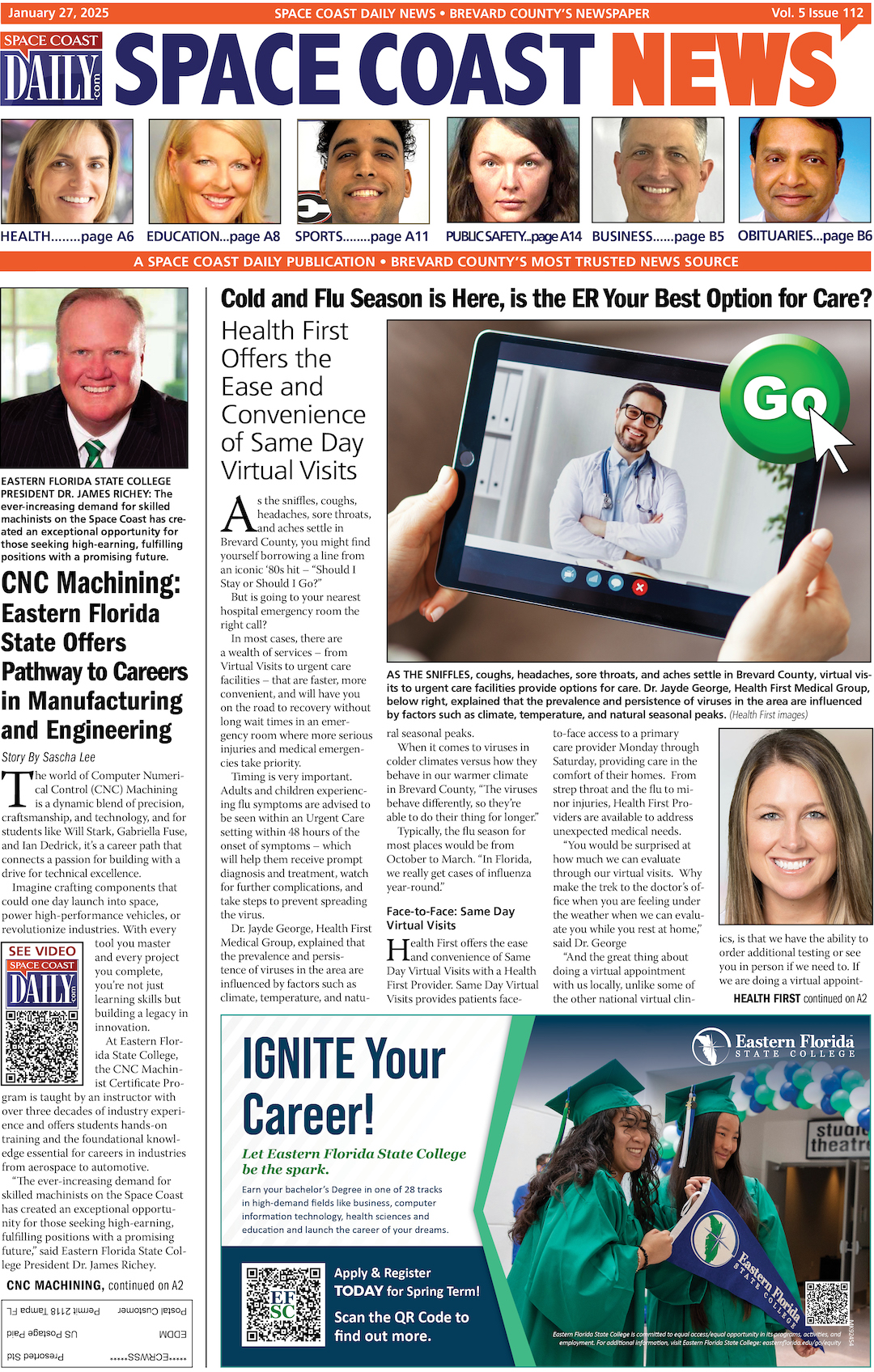MARTHA KESSLER: VITAS Trains its Caregivers to Care for Loved Ones – and Themselves
By Space Coast Daily // July 5, 2019
an overworked caregiver can negatively impact the patient’s health as well as their own

BREVARD COUNTY, FLORIDA – When a person becomes impaired by old age, illness or injury, a friend, family member or another relative may take responsibility for their care.
This primary caregiver helps a patient remain at home, rather than in a hospital, nursing home or assisted living facility.
Throughout the four decades that VITAS Healthcare has delivered expert hospice care to patients, caregivers have always played an important role in shaping and administering patients’ care plans.
The significance of that role, however, means that an overworked caregiver can negatively impact the patient’s health as well as their own.
Part of the team
Hospice caregivers are members of the interdisciplinary team, providing patients with personal care and minor medical care. Caregivers keep the patient’s hospice team informed of any changes in the patient’s condition.
To ensure they feel adequately prepared, VITAS trains its caregivers to care for their loved one and themselves.
VITAS takes seriously its commitment to caring for hospice-appropriate patients with six months or fewer to live, even those who are considered challenging or risky.
Whenever possible, VITAS accepts patients who have no caregiver—for example, those who have no family members or live far away from relatives.
Caregiver burnout: A real phenomenon
Whether a caregiver has assumed the mantle out of love, necessity or a sense of duty, caring for a loved one can be emotionally, mentally and physically exhausting.
In some instances, it can lead to “caregiver burnout,” defined as “a debilitating psychological condition brought about by unrelieved stress.”
Symptoms include:
- overwhelming fatigue
- sleep problems
- changes in eating habits
- depression
- other issues related to anxiety and stress
Because a caregiver might continue to work outside the home while also caring for a loved one at home, the impact of burnout can extend beyond the caregiver and their patient.
About 18 percent of American adults (43.5 million people) reported being a caregiver in a 2015 survey by the National Alliance for Caregiving.
A 2017 study published in Journal of Multidisciplinary Healthcare found that caregivers report a higher mean percentage of missed work time than non-caregivers (8% vs. 4%), greater impairment of job productivity (24% vs. 14%), and higher rates of depression (53% vs. 32%) and insomnia (46% vs. 37%).
Recognition, respite care and self-care are solutions
VITAS hospice teams are trained to keep an eye out for overworked caregivers.
We encourage all caregivers to:
-
-
- ask for help when necessary
- tend to your own needs
- find time to take breaks or pamper yourself
-
This keeps caregiver, patient and family happier and healthier. Additionally, VITAS offers up to five days of inpatient respite care, so a caregiver can take a vacation, attend an important event or simply get some rest.
Caregiving isn’t easy, but you’re not in it alone. If the person in your care is nearing the end of life, hospice can offer comfort and dignity for them along with support and guidance for you.
For more information about end-of-life care options, call VITAS Healthcare at 321.339.2893 or visit VITAS.com.
CLICK HERE FOR BREVARD COUNTY NEWS















